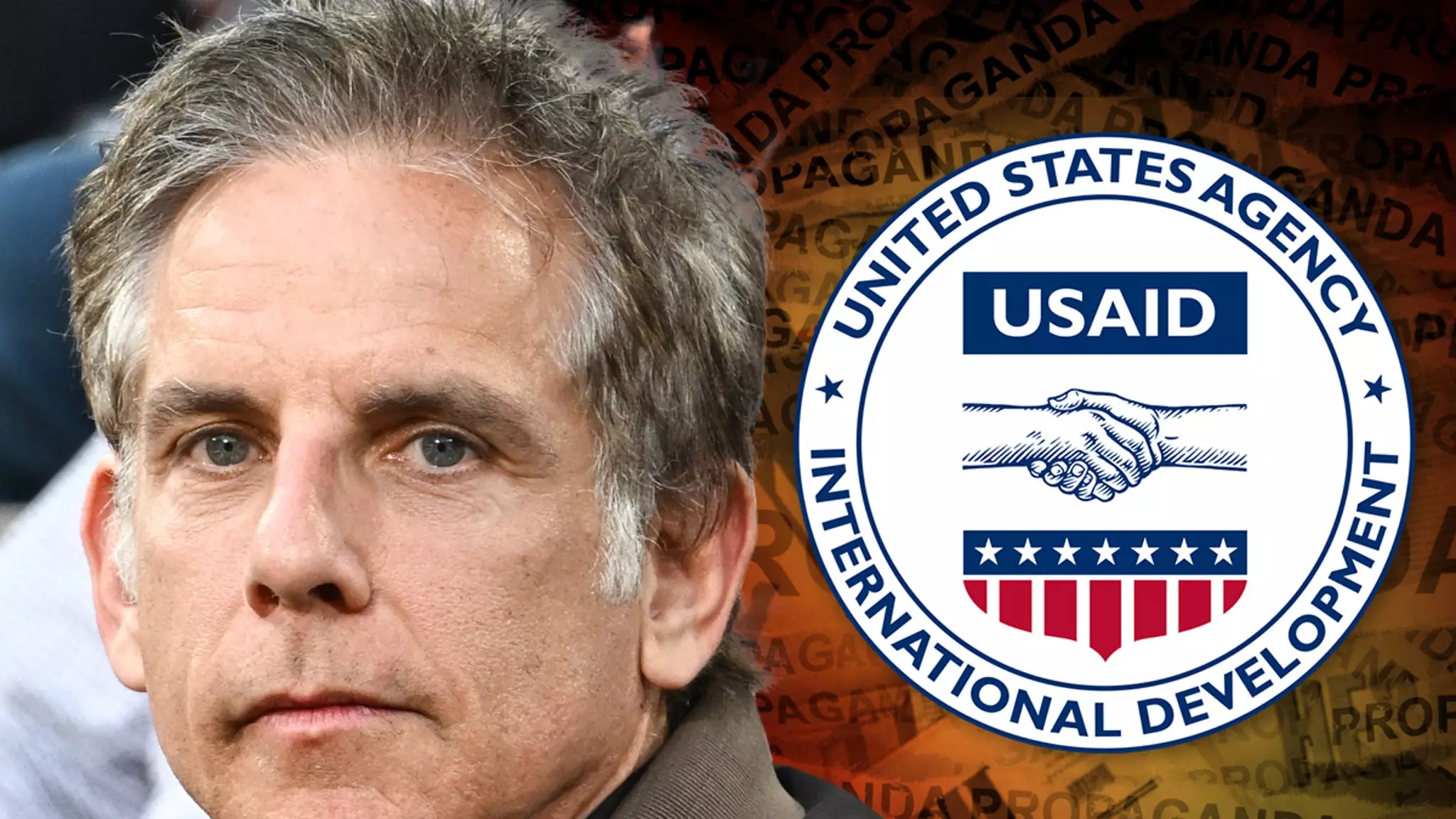In an era where misinformation spreads rapidly, celebrity statements can often become entangled in public debates and misconstrued narratives. Recently, actor and comedian Ben Stiller found himself in the eye of a storm when claims circulated suggesting that his humanitarian trip to Ukraine was funded by USAID. In an attempt to set the record straight, Stiller vehemently denied these allegations, stating that his visit was entirely self-funded. This incident raises important questions about the role of public figures in humanitarian efforts and the accuracy of information disseminated via social media platforms.
Stiller’s trip to Ukraine occurred during a turbulent period following Russia’s invasion in early 2022. His journey was motivated by a desire to offer support and solidarity to the people affected by the conflict. The actor had an opportunity to meet with Ukrainian President Volodymyr Zelensky, whom he described as a personal hero. Stiller’s visit was not just a fleeting publicity stunt; it was also a chance to amplify the dire humanitarian crisis impacting millions, as demonstrated through a heartfelt video message he recorded for World Refugee Day. This shows that Stiller’s commitment went beyond mere celebrity engagement; it was a sincere effort to bring attention to and support for those suffering through adversity.
The controversy around Stiller’s trip illustrates how social media, particularly platforms like X (formerly Twitter), can act as double-edged swords. The rapid spread of misinformation is exacerbated when figures such as Elon Musk amplify dubious content. A purported E! News video falsely implicated Stiller and several other celebrities in receiving taxpayer funding for their visits to Ukraine. Such claims were cheered on by segments of the right-wing social media sphere, notably including Donald Trump Jr. and Scott Baio. The virality of these false narratives highlights a concerning trend wherein celebrity actions become fodder for political weaponization, often leading to distortion of facts for partisan purposes.
In his clarification, Stiller articulated that the claims were “totally false” and stemmed from Russian media. His insistence on setting the record straight serves to highlight a growing need for transparency among public figures who engage in humanitarian efforts. As misinformation continues to pose significant challenges to public discourse, it’s clear that entertainers and activists alike must remain vigilant. Stiller’s proactive approach not only aimed to protect his own reputation but also sought to ensure that the integrity of humanitarian missions is maintained.
Moreover, the episode sheds light on the broader implications for organizations like USAID, especially in light of Musk’s assertions that it may operate as a “criminal organization,” a sentiment fueled by political agendas. As discussions surrounding funding for humanitarian efforts become increasingly polarized, it’s crucial to recognize the real impact these debates have on individuals in need. Stiller’s self-funded endeavors should serve as an example for those in media and politics alike to prioritize truth and compassion over sensational narratives. As celebrities increasingly leverage their platforms for social causes, the onus is also on them to combat misinformation and reclaim the narrative surrounding their efforts.

